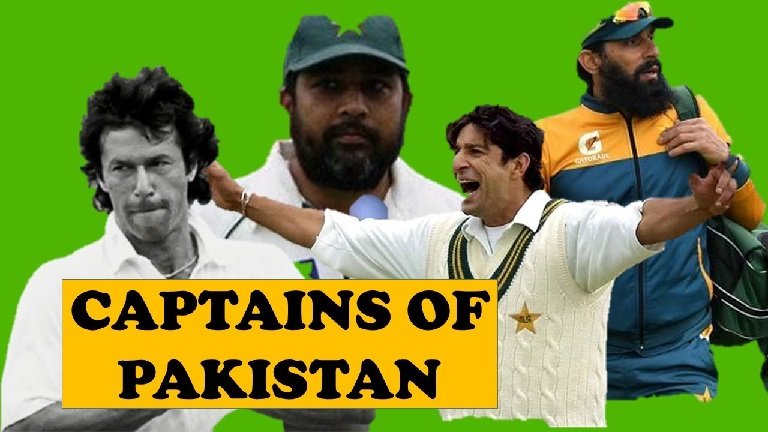Pakistan National Cricket Team Captain: An In-Depth Analysis
The captaincy of the Pakistan national cricket team has always been a topic of immense interest and scrutiny among cricket enthusiasts. With a rich cricketing legacy, Pakistan has produced some of the most iconic leaders who have steered the team to remarkable victories. This article provides an exhaustive look at the history, challenges, and achievements of Pakistan’s cricket captains, offering a detailed exploration of their leadership styles, strategies, and contributions to cricket.
The Evolution of Captaincy in Pakistan Cricket
Early Years (1947–1970)
The inception of Pakistan cricket dates back to 1947 when the country gained independence. Cricket, inherited from British colonialism, quickly became a passion in the newly formed nation.
- First Test Match and Captaincy:
Pakistan played its inaugural Test match against India in 1952, under the leadership of Abdul Hafeez Kardar, often referred to as the “Father of Pakistan Cricket.” Kardar’s leadership laid the foundation for Pakistan cricket, emphasizing discipline and team unity. - Challenges in the Early Era:
The team faced logistical, financial, and talent-related challenges in its formative years. However, Kardar’s vision and strategy helped Pakistan secure its first Test win against India in the same series.
Golden Era of the 1970s and 1980s
During this period, Pakistan cricket witnessed exponential growth, thanks to captains who combined skill with strategic leadership.
- Intikhab Alam (1969–1975):
As the first ODI captain, Intikhab Alam led Pakistan in their inaugural ODI match in 1971. His leadership brought professionalism to the team. - Mushtaq Mohammad (1976–1979):
Mushtaq’s innovative captaincy, especially in spinning tracks, set Pakistan on a path to international recognition. - Asif Iqbal and Javed Miandad:
Both leaders played pivotal roles in the late 70s and early 80s, focusing on building a team that could compete globally.
Landmark Achievements Under Various Captains
1992 Cricket World Cup Victory: Imran Khan
No discussion about Pakistan’s cricket captains is complete without mentioning Imran Khan, who led the team to its first and only Cricket World Cup win in 1992. His charisma, determination, and ability to inspire his team transformed Pakistan cricket.
- Imran’s Leadership Traits:
- Focus on youth development.
- Emphasis on fitness and mental toughness.
- Strategy-oriented captaincy.
2009 ICC T20 World Cup: Younis Khan
In 2009, Pakistan clinched the ICC T20 World Cup under Younis Khan’s leadership. This win symbolized Pakistan’s adaptability to the T20 format and solidified their position as a cricketing powerhouse.
Misbah-ul-Haq: The Stabilizer (2010–2017)
- Under Misbah-ul-Haq, Pakistan rose to the No. 1 spot in ICC Test rankings. Misbah’s calm demeanor and ability to lead by example were instrumental in rebuilding Pakistan cricket during a turbulent phase.
Key Statistics of Pakistan National Cricket Team Captains
The following table summarizes the key records of some of Pakistan’s most notable captains:
| Captain | Years Active | Matches as Captain (Test/ODI/T20) | Win Percentage | Major Achievements |
|---|---|---|---|---|
| Abdul Hafeez Kardar | 1952–1958 | 23 (Test) | 29.17% | First Test win for Pakistan |
| Imran Khan | 1982–1992 | 88 (Test/ODI) | 50%+ | 1992 Cricket World Cup Winner |
| Wasim Akram | 1993–2000 | 109 (Test/ODI) | 52%+ | 1999 ICC Cricket World Cup Runner-up |
| Younis Khan | 2005–2009 | 25 (Test/T20) | 60%+ | 2009 ICC T20 World Cup Winner |
| Misbah-ul-Haq | 2010–2017 | 87 (Test/ODI) | 50%+ | No. 1 ICC Test Team Rankings |
Challenges Faced by Captains
Political Interference
Captains often face challenges due to political influences in team selection and management. This has occasionally hindered the team’s progress and led to abrupt changes in leadership.
Media Pressure
With cricket being a national obsession, captains are often under relentless scrutiny from fans and media alike.
Balancing Act
Managing senior players while nurturing young talent has always been a tightrope walk for Pakistan captains.
Modern Era and the Role of Technology
Today, captains like Babar Azam symbolize a blend of traditional leadership and modern tactics. Technology plays a crucial role in decision-making, enabling captains to analyze opponents, strategize, and refine their approach.
Top 5 Memorable Moments Under Pakistan Captains
- 1954 Victory Against England:
Pakistan’s first win in England under Kardar’s leadership. - 1992 Cricket World Cup Final:
Imran Khan’s iconic performance at the Melbourne Cricket Ground. - 2009 ICC T20 World Cup:
Younis Khan’s leadership in a thrilling final against Sri Lanka. - 2016 No. 1 ICC Test Ranking:
Misbah-ul-Haq receiving the ICC mace for leading Pakistan to the top Test ranking. - 2021 ICC T20 World Cup Semifinal:
Babar Azam’s team displaying remarkable consistency throughout the tournament.
Frequently Asked Questions
Who is the most successful captain of Pakistan?
Imran Khan is widely regarded as Pakistan’s most successful captain, leading the team to the 1992 Cricket World Cup victory.
How many captains has Pakistan had?
Pakistan has had over 30 captains across all formats since 1952.
Who is the current captain of the Pakistan cricket team?
As of 2024, Babar Azam leads Pakistan in all three formats of the game.
Conclusion
The captaincy of the Pakistan national cricket team reflects the country’s cricketing journey—marked by moments of brilliance, resilience, and an indomitable spirit. From Abdul Hafeez Kardar to Babar Azam, each captain has contributed to the team’s legacy, shaping Pakistan cricket into what it is today.
With a bright future ahead, Pakistan cricket continues to inspire millions worldwide, and its captains will undoubtedly play a pivotal role in scripting the next chapter of this remarkable story.
Read Also: Royal Challengers Bangalore vs Rajasthan Royals Timeline: A Complete History


